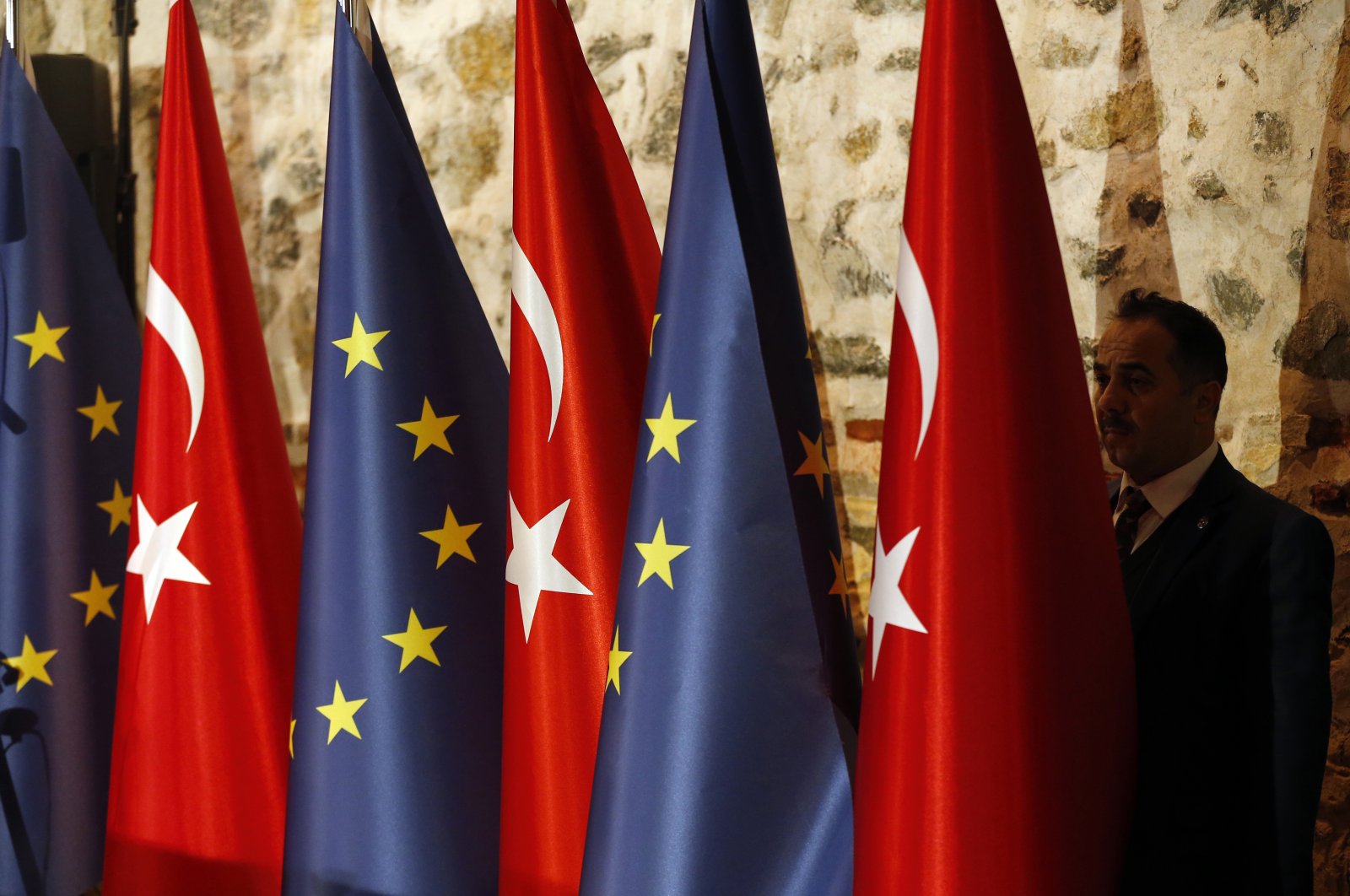
About the EUISS
According to its webpage, The European Union Institute for Security Studies (EUISS) is the Union's Agency analyzing foreign, security, and defense policy issues. Its core mission is to assist the EU and its member states in implementing the Common Foreign and Security Policy (CFSP), including the Common Security and Defence Policy (CSDP) and other external actions of the Union. It is also stated on the webpage that The Institute was set up in January 2002 as an autonomous agency under Council Joint Action 2001/554 to strengthen the EU's analysis, foresight, and networking capacity in external action. The Institute also acts as an interface between the EU institutions and external experts – including security actors – to develop the EU's strategic thinking. The EUISS is an integral part of the structures that underpin the further development of the CFSP/CSDP. The EUISS is headquartered in Paris, France. In 2012, it opened a Liaison Office (BLO) in Brussels, Belgium, situated in the Justus Lipsius building – the main seat of the Council of the EU and the General Secretariat of the Council. The BLO boosts the Institute's presence and visibility in the home of the EU institutions, and around forty individuals work at the EUISS. As for the webpage, the Institute's activities focus on policy-oriented analysis through its publications or events, and the EUISS' flagship publication is its Chaillot Paper series.[1]
How did Chaillot Papers portray Türkiye in its past publications?
In our AVİM Analysis dated 2 October 2018 and numbered 2018/18, we provided information on the EUISS Chaillot Paper No. 147 titled "Balkan Futures- Three Scenarios for 2025" published on 3 September 2018. We expressed our criticism and dismay about the presentation of Türkiye in the Challiot Paper as an adversary country to the EU in the Balkans. In the EUISS paper in question, Türkiye was named as one of the "disruptive external actors" of the Balkans. In our mentioned analysis, we characterized this reference as "extremely unfair" and stressed that the EUISS owes a correction to the Turkish public for naming Türkiye as such. [2]
Another example is Chaillot Paper /171, published by EUISS in December 2021, titled "Strategic Compass: New Bearings for EU Security and Defence?" This paper describes Türkiye as a country that intervenes in the Balkans from outside, along with Russia and China. It is claimed that it harms the interests of the EU. In the same Paper, Türkiye, Russia, and China are also described as countries in strategic competition with the EU in the south and east of the EU. In our analysis regarding this Chaillot Paper, we made the following assessment of these characterizations:
"As these references reveal, European Union Institute for Security Studies, as a general approach, considers Türkiye, which has been an associate country of the EU since 1963, a candidate for membership since 2005, and a NATO member since 1952, as an adversary country. EUISS should seriously ask itself how it is possible to prepare a primary document for the EU on security and defence with such a shallow vision. In our judgment, it would not be wrong to consider such a hostile attitude towards Türkiye as the eclipse of reason."[3]
New Chaillot Paper/ 182: "Türkiye's Cards In The World: Raising The Stakes"
The EUISS published a new Chaillot Paper on Türkiye last month. The paper is titled "Türkiye's Cards In The World: Raising The Stakes." The Paper's Executive Summary section starts with the following introduction:
"Türkiye's footprint in various regions of the world has expanded. This is clear not only in economic terms but also in the country's successful projection of its soft power, as demonstrated by its educational initiatives or in the popularity of Turkish television series with audiences across Africa, the Middle East, the South Caucasus, and the Western Balkans. At the hard power end of the spectrum, it is reflected in the growing prominence of Türkiye's TB2 drones in modern battlefields. This confluence of cultural exports and technological advancements paints a picture of a country with clear ambitions: diplomatic prowess, economic expansion, and powerful military capabilities. "[4]
As mentioned in the above paragraph, the paper focuses on four regions: Africa, the Middle East, the South Caucasus, and so-called "the Western Balkans. "[5] In the conclusion section of the Paper, which bears the sub-title of "Charting a course for regional cooperation, "Dalia Ghanem proposes the following:
"The relationship between the EU and Türkiye is complex, marked by cooperation and tension. Efforts by both sides to stop the escalatory dynamics in the Eastern Mediterranean have been pursued and must continue, as stated by the European Commission Conclusions of June 2021. Türkiye's growing influence across the Balkans, South Caucasus, Africa, and the Middle East presents an opportunity for both sides to refocus on common ground and build a strategic partnership. Broader geopolitical shifts also make such a partnership increasingly important for the EU. This chapter outlines policy recommendations for the EU to navigate this evolving landscape, capitalising on Türkiye's strengths while addressing potential areas of friction... As seen in the four previous chapters, Türkiye commands significant soft power which allows it to build bridges with countries across these regions. The EU can explore many ways to leverage this soft power to promote regional stability and cultural exchange. "[6]
The conclusion section includes suggestions regarding areas where concrete cooperation with Türkiye can be made for each region.
Conclusion
The details of the proposals regarding the cooperation that can be made by the EU and Türkiye according to the regions included in the Chaillot Paper/182 are undoubtedly important. In our judgment, the important aspect of the Chaillot Paper 182 is that, in a paper prepared under the responsibility of EUISS, Türkiye was not considered this time as an adversary country. We interpret it as a positive development, as the EU has begun to recover from its mental eclipse. The point to remember is this: The most straightforward approach is to be confrontational, stick to patterns, and repeat the same narrative as a parrot. On the other hand, what is difficult but in the interest of societies, communities, and countries is to put conflict aside, cooperate, and try to understand each other.
*Picture: Daily Sabah
[1] The European Union Institute for Security Studies (EUISS), "About Us," accessed June 6, 2024, https://www.iss.europa.eu/about-us
[2] Teoman Ertuğrul Tulun, "Chaillot Paper on Balkans Future: A Case of Ill-Informed Leading the Ill-Informed," AVİM Analysis no. 2018/28, October 2, 2018, https://doi.org/10.31219/osf.io/ecwhj. https://avim.org.tr/en/Analiz/CHAILLOT-PAPER-ON-BALKANS-FUTURE-A-CASE-OF-ILL-INFORMED-LEADING-THE-ILL-INFORMED.
[3] Teoman Ertuğrul Tulun, "EU Strategic Compass for Security and Defence Shows the Wrong Course at the Worst Possible Time," AVİM Analysis no. 2022/6.
[4] European Union Institute for Security Studies (EUISS), "Türkiye’s Cards in the World: Raising the Stakes," Chaillot Paper no. 182, edited by Dalia Ghanem, with contributions from Pinar Akpinar, Ondrej Ditrych, Rossella Marangio, and Bojana Zorić, May 2024, https://www.iss.europa.eu/sites/default/files/EUISSFiles/CP_182_0.pdf
[5] AVİM considers the term "Western Balkans" to be a politically motivated separatist terminology and insist on the use of the geographical and historical identification "Balkans" regarding the region.
[6] Chaillot Paper no. 182 (2024), 45.
© 2009-2025 Center for Eurasian Studies (AVİM) All Rights Reserved
No comments yet.
-
 GOLDEN DAWN IS ATTEMPTING TO REGAIN A PRESENCE IN GREECE WITH A FOCUS ON NORTHERN GREECE AND WESTERN THRACE
GOLDEN DAWN IS ATTEMPTING TO REGAIN A PRESENCE IN GREECE WITH A FOCUS ON NORTHERN GREECE AND WESTERN THRACE
Teoman Ertuğrul TULUN 15.03.2023 -
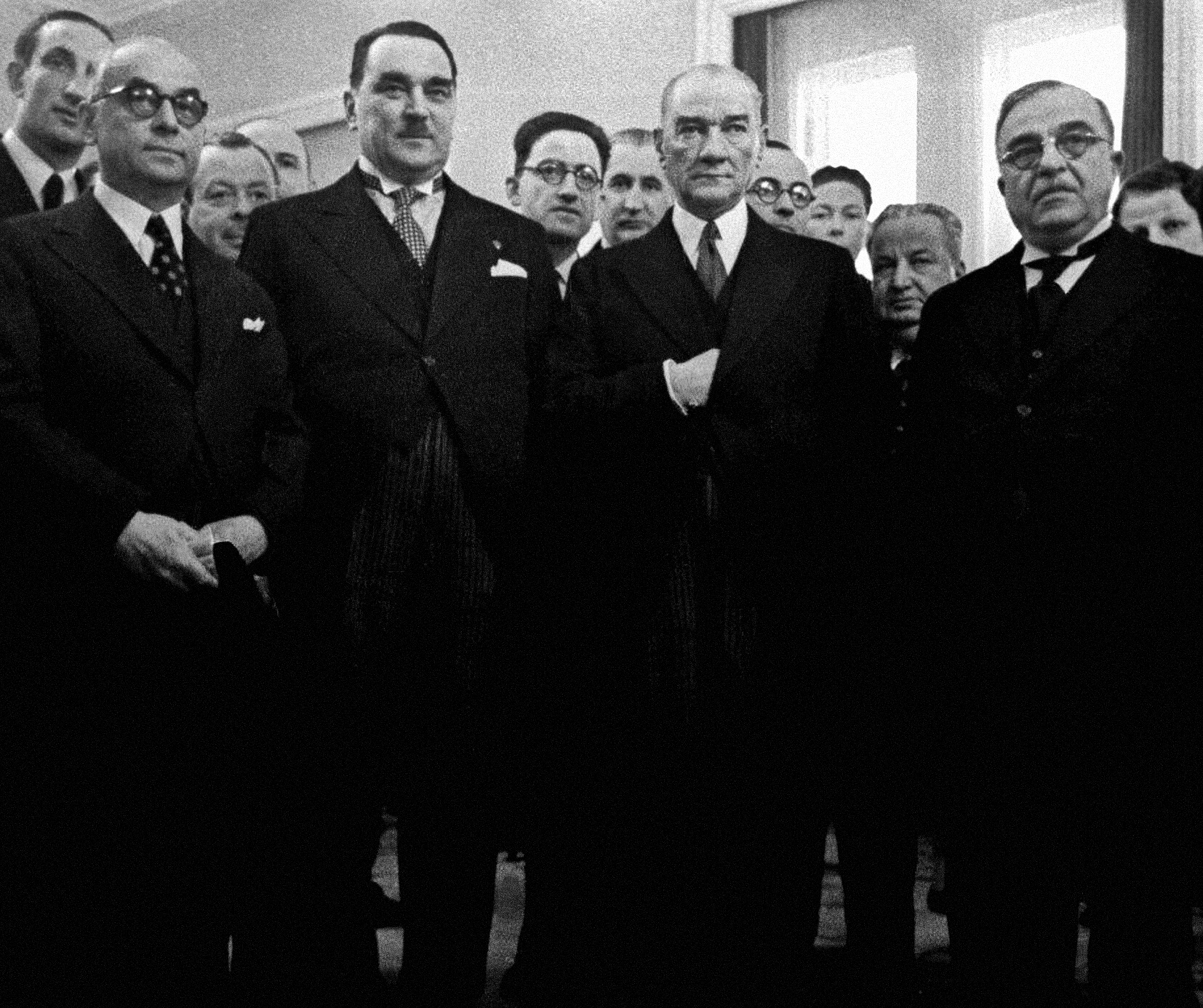 1934 PACT OF BALKAN ENTENTE: THE PRECURSOR OF BALKAN/SOUTHEAST EUROPE COOPERATION
1934 PACT OF BALKAN ENTENTE: THE PRECURSOR OF BALKAN/SOUTHEAST EUROPE COOPERATION
Teoman Ertuğrul TULUN 06.08.2020 -
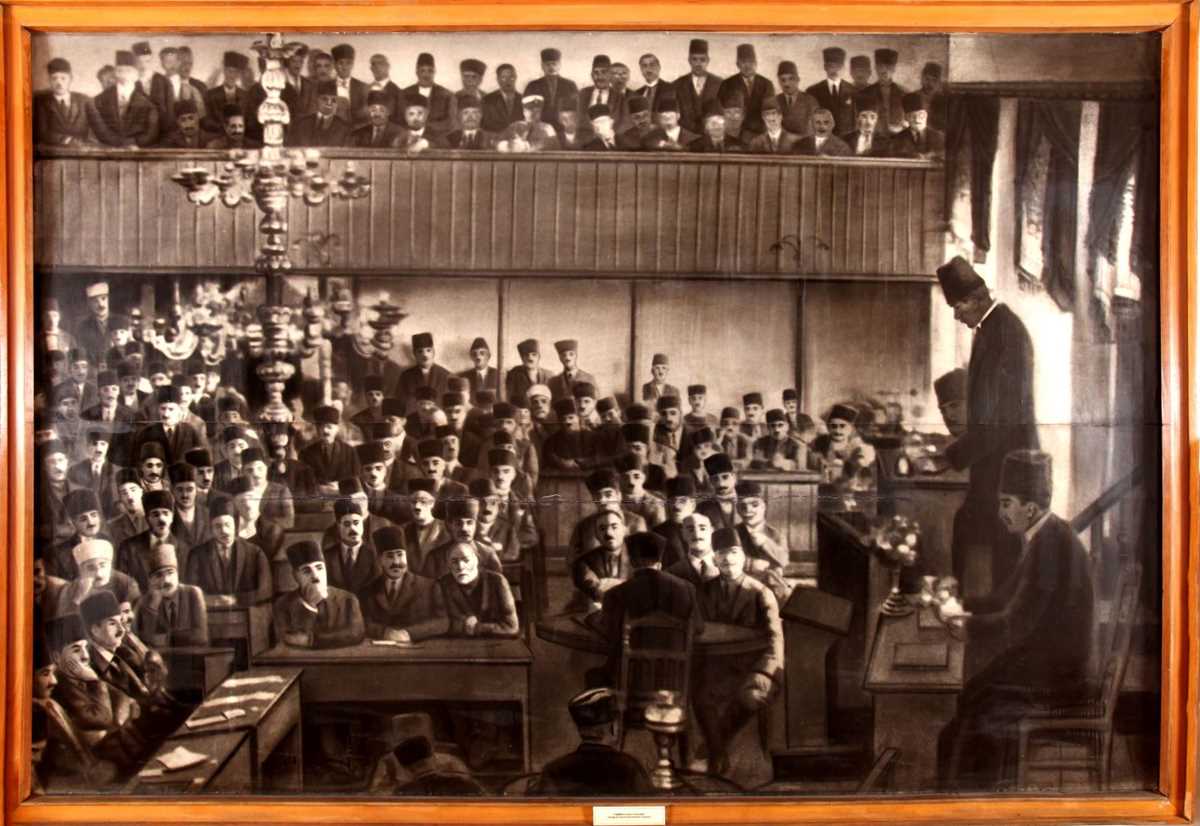 REMEMBERING AND REMINDING THE SIGNIFICANCE, MEANING, AND PROVISIONS OF THE LAUSANNE PEACE TREATY IN ITS CENTENARY
REMEMBERING AND REMINDING THE SIGNIFICANCE, MEANING, AND PROVISIONS OF THE LAUSANNE PEACE TREATY IN ITS CENTENARY
Teoman Ertuğrul TULUN 11.05.2023 -
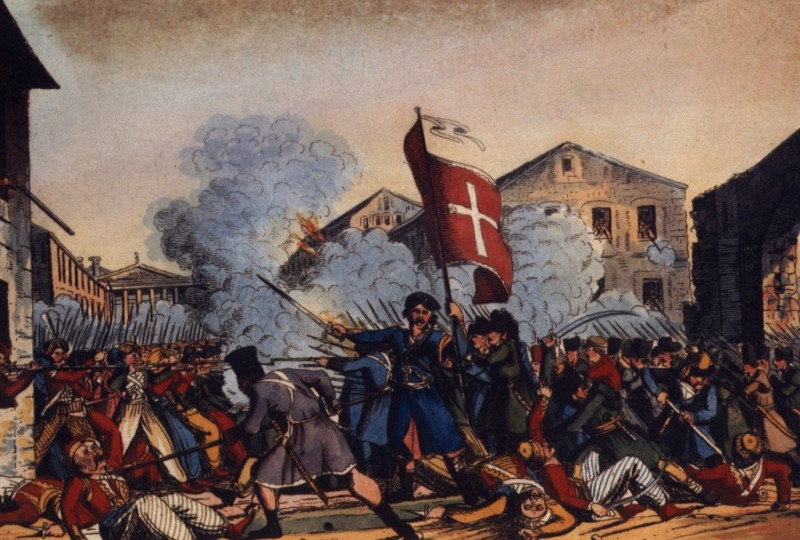 GREECE: 1821 CELEBRATIONS, TRIPOLITSA MASSACRE, BBC AND FAKE NEWS
GREECE: 1821 CELEBRATIONS, TRIPOLITSA MASSACRE, BBC AND FAKE NEWS
Teoman Ertuğrul TULUN 31.03.2021 -
 THE FOUNDATIONAL PILLARS OF STABILITY IN THE BLACK SEA
THE FOUNDATIONAL PILLARS OF STABILITY IN THE BLACK SEA
Teoman Ertuğrul TULUN 16.04.2025
-
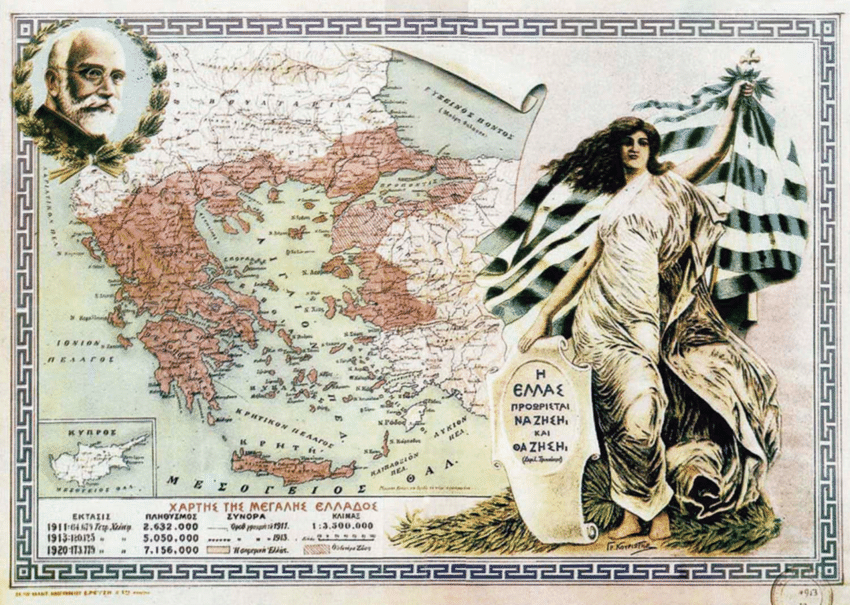 CONSEQUENCES OF MATERIAL BREACH OF THE LAUSANNE PEACE TREATY
CONSEQUENCES OF MATERIAL BREACH OF THE LAUSANNE PEACE TREATY
Teoman Ertuğrul TULUN 07.10.2020 -
 THE “NEJDEHISM” REMAINS OFFICIAL IN ARMENIA
THE “NEJDEHISM” REMAINS OFFICIAL IN ARMENIA
Maxime GAUIN 30.10.2019 -
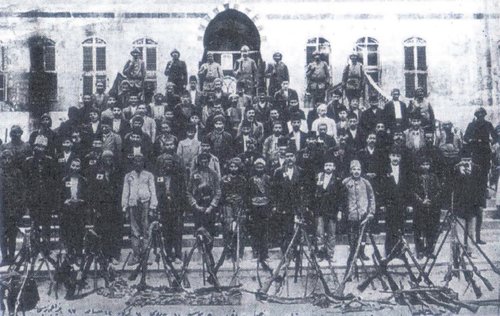 24 APRIL 1915: WHAT HAPPENED?
24 APRIL 1915: WHAT HAPPENED?
Tutku DİLAVER 27.04.2018 -
 DISGUISED INITIATIVES ON NAGORNO-KARABAKH IN EUROPEAN PARLIAMENT
DISGUISED INITIATIVES ON NAGORNO-KARABAKH IN EUROPEAN PARLIAMENT
Teoman Ertuğrul TULUN 20.02.2018 -
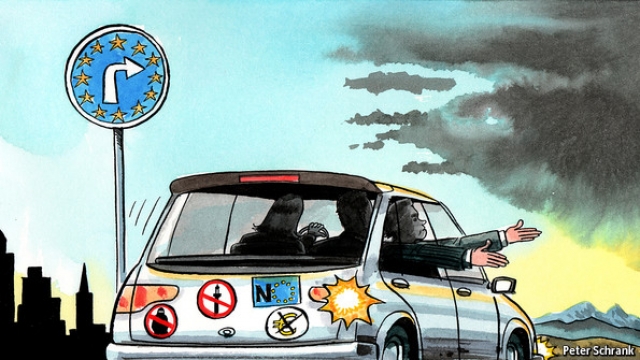 RISING ISLAMOPHOBIA IN THE WESTERN WORLD AND THE TURKISH-ARMENIAN CONTROVERSY
RISING ISLAMOPHOBIA IN THE WESTERN WORLD AND THE TURKISH-ARMENIAN CONTROVERSY
Mehmet Oğuzhan TULUN 15.03.2019
-
25.01.2016
THE ARMENIAN QUESTION - BASIC KNOWLEDGE AND DOCUMENTATION -
12.06.2024
THE TRUTH WILL OUT -
27.03.2023
RADİKAL ERMENİ UNSURLARCA GERÇEKLEŞTİRİLEN MEZALİMLER VE VANDALİZM -
17.03.2023
PATRIOTISM PERVERTED -
23.02.2023
MEN ARE LIKE THAT -
03.02.2023
BAKÜ-TİFLİS-CEYHAN BORU HATTININ YAŞANAN TARİHİ -
16.12.2022
INTERNATIONAL SCHOLARS ON THE EVENTS OF 1915 -
07.12.2022
FAKE PHOTOS AND THE ARMENIAN PROPAGANDA -
07.12.2022
ERMENİ PROPAGANDASI VE SAHTE RESİMLER -
01.01.2022
A Letter From Japan - Strategically Mum: The Silence of the Armenians -
01.01.2022
Japonya'dan Bir Mektup - Stratejik Suskunluk: Ermenilerin Sessizliği -
03.06.2020
Anastas Mikoyan: Confessions of an Armenian Bolshevik -
08.04.2020
Sovyet Sonrası Ukrayna’da Devlet, Toplum ve Siyaset - Değişen Dinamikler, Dönüşen Kimlikler -
12.06.2018
Ermeni Sorunuyla İlgili İngiliz Belgeleri (1912-1923) - British Documents on Armenian Question (1912-1923) -
02.12.2016
Turkish-Russian Academics: A Historical Study on the Caucasus -
01.07.2016
Gürcistan'daki Müslüman Topluluklar: Azınlık Hakları, Kimlik, Siyaset -
10.03.2016
Armenian Diaspora: Diaspora, State and the Imagination of the Republic of Armenia -
24.01.2016
ERMENİ SORUNU - TEMEL BİLGİ VE BELGELER (2. BASKI)
-
AVİM Conference Hall 24.01.2023
CONFERENCE TITLED “HUNGARY’S PERSPECTIVES ON THE TURKIC WORLD"









